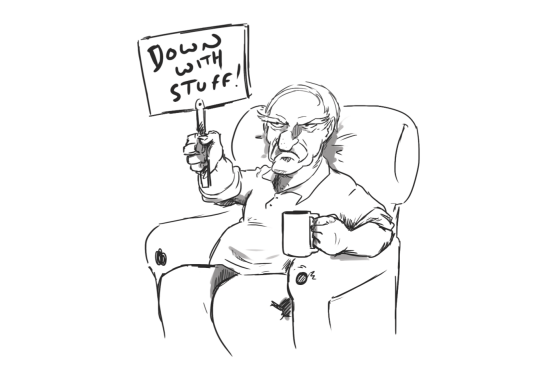The Failings of Armchair Activism
Performative Activism and its Negative Effects on Societal Issues

October 22, 2021
Imagine sitting in your mansion, making comments to your millions of followers about how important it is to help those in need, then not donating a penny of the millions of dollars you have. This is armchair activism, a problem that continues to have negative effects on societal issues.
Armchair, or performative, activism is when someone uses an important issue to increase their social standing rather than actually doing anything about it. By using other people’s problems to their advantage, they are doing more harm than good. It takes the attention away from the people whose voices actually need to be heard. Hearing about the problem from an individual that is not affected is completely different than hearing the perspective of a person being oppressed.
Blackout Tuesday was June 2, 2020. On this day, people from around the world posted a black screen on Instagram to show their support for the Black Lives Matter movement. For many celebrities and social media stars, the event was simply a way to gain popularity.
By posting a black screen, they had the opportunity to raise their own public profile and gain thousands of followers. They would get people to think that they were an ally, when in reality they may not actually care about the cause. Racism and police brutality are still very big issues over a year later, yet not many of the celebrities who showed their support when it was a “trend” are continuing to talk about it now.
This fake activism makes people believe that they have someone on their side, when that person could be a part of the problem. It is very important to show your support, but when someone is doing it with an ulterior motive, it can have negative or neutral effects.
A more recent event was Alexandria Ocasio-Cortez’s “TAX THE RICH” dress at the Met Gala. It costs $30,000 for a single seat at the Met Gala and $200,000-$300,000 for a table. She’s applauded for walking a red carpet with A-list celebrities and millionaires, while protesters get pepper-sprayed and hated on for contributing more to fixing a problem.
People get praised for these performative stunts when they are not really doing anything. It can be argued that this is to spread awareness, but actually contributing to a cause is much more important. Bringing attention to issues is necessary, but we should not be applauding those who do the bare minimum with the resources they have.
The designer of this gown, Aurora James, has also been accused of failing to pay her own taxes. Expecting others to do something that you are not doing yourself causes more harm than good. It sends the message that it is not actually important.
A celebrity will wave a pride flag on stage, then go use homophobic slurs. A social media influencer will go to a protest just to get an Instagram picture. A public figure will post a link telling their followers to donate and will not do the same. Somebody will speak out against racism then get caught using the N-word in private. It is very hard to distinguish the people who genuinely care from the people who only want followers and likes. An Instagram post can be made in less than a minute, making it incredibly easy for someone to use other people’s problems to their advantage.
Performative activism does not contribute to progression within movements, instead it can create problems. When your Instagram feed is flooded with people posting the same thing to look like they care, you miss crucial information on the topic. When a celebrity or person you admire says something, you are most likely going to take their word for it.
This is why we need to make sure we are getting accurate information rather than just blindly believing what we hear from our idols. Nothing is going to change for the better if performative activism continues. Stop relying solely on celebrities for information, and do your own research if you are going to claim to care about a topic.












Ray Arnold • Oct 28, 2021 at 9:52 am
this is a good point .